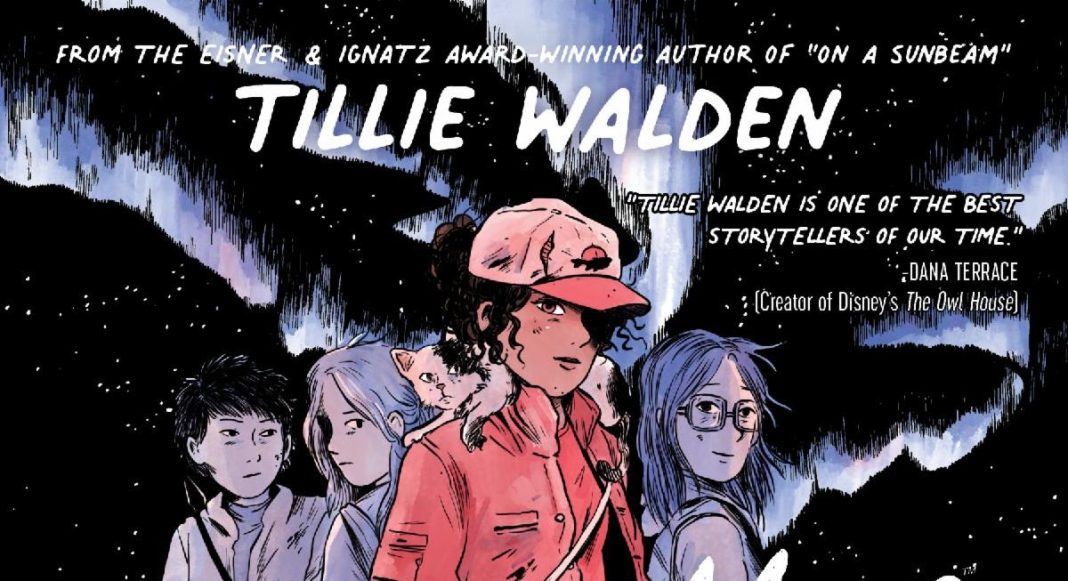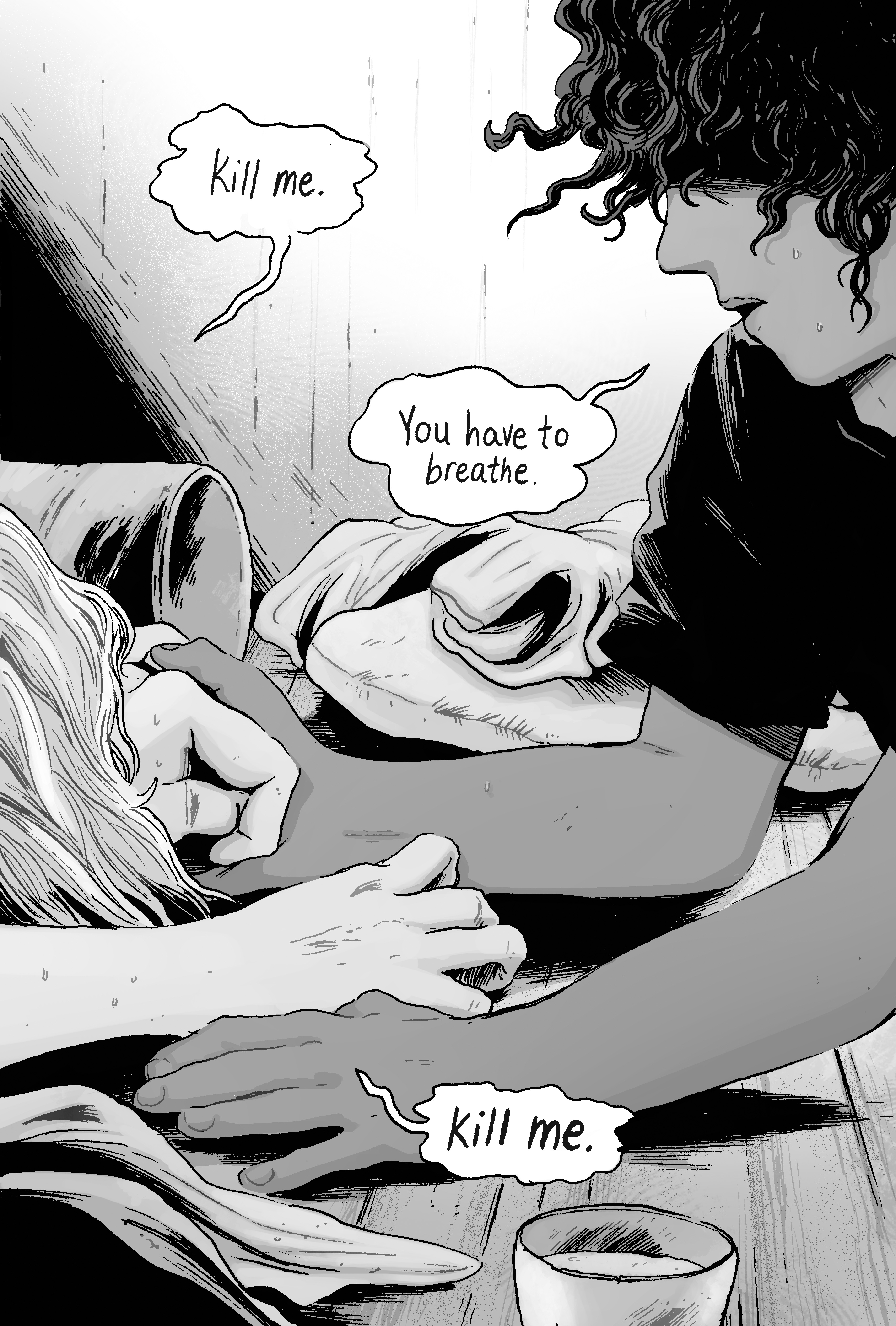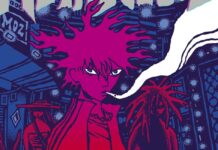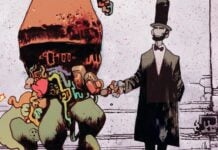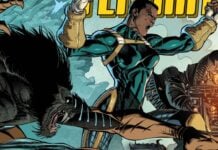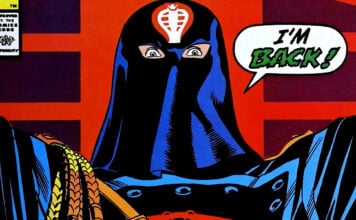Clementine, Volume 3
Cartoonist: Tillie Walden
Publisher: Image Comics
Publication Date: June 2025
Acclaimed cartoonist Tillie Walden has spent the last few years creating a trilogy of graphic novels set in the universe of Robert Kirkman and Charlie Adlard‘s The Walking Dead, canonising popular character Clementine (who first appeared in Telltale Games‘ The Walking Dead: Season 1) and telling a new story focused on her. All things end, and it’s time for the conclusion to Walden’s acclaimed trilogy of graphic novels focused on the character. In typical fashion for the larger The Walking Dead franchise, things reach a fever pitch with a widespread violent conflict, but there is a sense of emotional intimacy, devastating sadness and profound empathy that lead to what is without a doubt one of the best entries in the entire larger franchise, a riveting and beautiful finale that left me in tears.
The final chapter is set months after the conclusion of Clementine, Volume 2 and sees Clementine, Olivia, Shu-Fen and Ricca attempting to settle in to their new home of Nuuk, Greenland, after being taken in by middle-aged couple Derrick and Saa. However, after a devastating and sudden tragedy, Clementine’s bonds with her loved ones are tested, and she’s caught right in the middle of a conflict between local leaders Ujammiugaq and Maria, who is also known as The Gardener. Ujammiugaq fights to reclaim what was lost with the apoclaypse, encouraging the kids to go to school, learn and grow just as they would’ve before the outbreak. Maria, in contrast, runs a psuedo-cult of young girls hurting from grief and loss, encouraging them to be violent warriors and give themselves to the fight. Clementine is faced with the consequences of her own grief and chosing what she wants from her future. The Greenland setting is one of the biggest factors individualising this book, and is an incredible addition to the larger mythos. It’s great to finally see more of the world outside the United States in the comic series, and Walden puts massive effort into conveying local languages, folklore and culture with respect, understanding and clarity. It’s clear that the time taken into researching the book has payed off, and it feels like one of the most well-realised settings in the series.
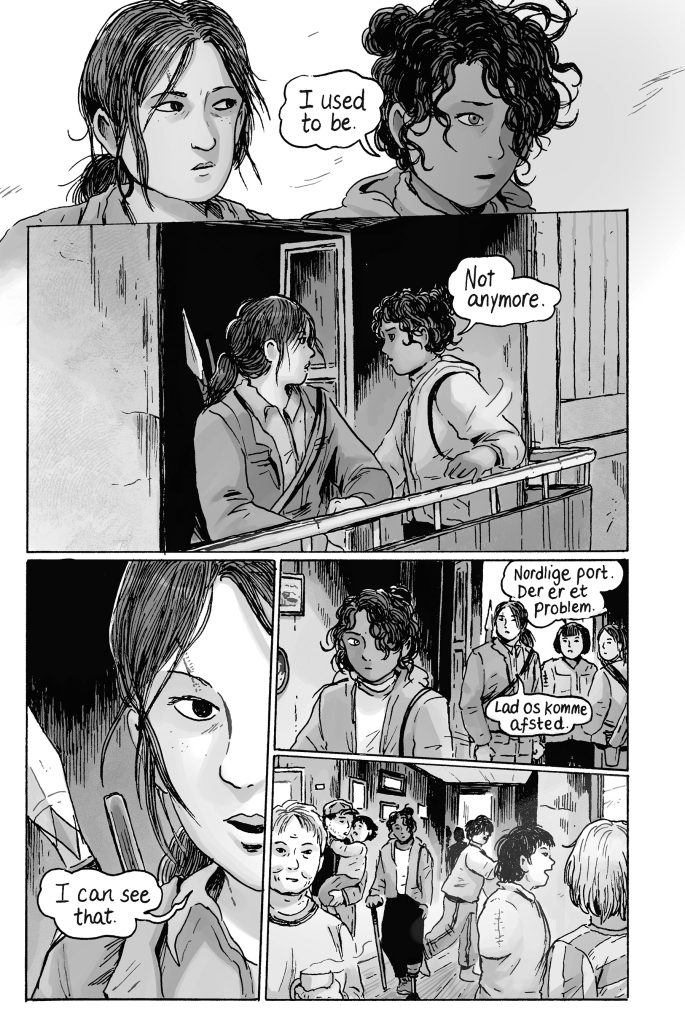
The story tackles a number of themes head on. Grief, death and loss are of course the primary motivator for the plot, as most of the major characters are experiencing some form of grief during the narrative. It is that sense of loss that Maria preys on, manipulating and turning into rage and cult-like devotion. In many ways, it’s the primary theme of the whole trilogy, and Walden continues to explore it well with a sense of understanding and realism that make it incredibly compelling to read about. Walden consistently finds new ways to tackle the theme, and so I never found the trilogy becoming repetitive or dull. I find the central death that kicks off the plot events of this volume to be one of the saddest deaths across the whole franchise. It isn’t violent, but it isn’t heroic. It just happens. One minute they are there, and the next, they are gone. They had been having health problems, but no one wanted to believe they might die from it. It’s something so true to life, and so viscerally sudden, that it actually quite upset me, because it resonated so much with my own experiences of grief and loss. I sat in tears and had to take a break from reading the book; it just hit close to home, and I’m sure it will for many. In a storytelling sense, it’s a stroke of genius, but it’s also painfully real in a way that demonstrates post-apocalyptic media at its best. In a series full of violent zombie deaths, a character dying suddenly of natural causes outside of anyone’s control is absolutely devastating.
Another central idea to this book is about youth in the end of the world; do you try to recapture what was lost, which you might never have even had, or do you give in to the state of the world and become just another animal fighting for survival? That’s the core ideological divide between Ujammi and Maria, and Clementine’s emotional conflict between these two states is very understandable and sympathetic. She wants something to ease the pain, but she doesn’t want to lose who she is along the way, and that leaves her in a bind. On one side of this conflict is Shu-Fenn, who gives herself whole-heartedly into Maria’s violence in order to fight against her feelings of loss after the events of the previous volume. On the other side is Olivia and Ricca, who have seen Clementine grow and change and want to fight with her for a better, more peaceful life. Whilst this type of ideological conflict is seen countless times in the main comic, Walden approaches it differently to Kirkman, and tackles it from the point of young people and their overwhelming feelings. To the older generation, it’s a few more years at most, but to our core cast, it will define the rest of their lives, however long or short they might be. That alone makes it feel different to anything we’ve seen in the series before.
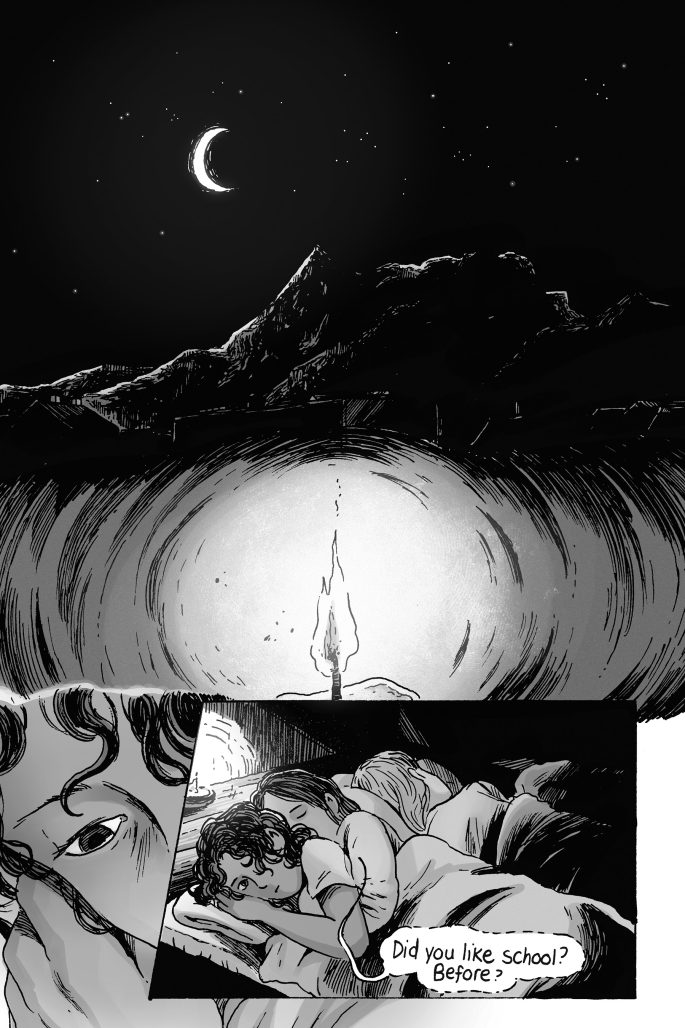
Walden’s writing is genuine and subtle. She’s got a great knack for characters, understanding the voice and characterisation that Telltale Games infused into Clementine whilst putting her own spin on it that in all honesty, I like better. She feels incredibly multifaceted and realistic for someone her age, bogged down by trauma and often unpleasant whilst never being unlikeable. She has simple goals, and is burdened by just how challenging those goals often are to reach. Olivia’s new-found motherhood does limit her role in the narrative, but it gives every scene with her in it a sense of importance. Ricca continues to be my favorite character in the trilogy, as her worsening eyesight brings along its own set of challenges to life in a post-apocalypse. Her romance with Clementine is adorable and incredibly believable, standing out as one of the most compelling in the larger franchise. Shu-Fenn continues to be the least compelling member of the main cast for me, but her anger and frustration are palpable and understandable in this book. Derrick and Saa remain mostly minor supporting characters, but Saa gets some major moments in the narrative, particularly involving Clementine, which feel earned and moving. Ujammiugaq feels a little under-developed, because most of her beliefs are defined as being in opposition to Maria, but there are only so many pages that can be fit into this book, and it’s already the longest entry in the trilogy. Maria is an incredibly well-realised antagonist, reminding me of franchise greats like The Governor or Negan. Every time she’s on page, you feel a sense of dread and tension, as if she’s a bomb slowly ticking until it explodes. Her ideology is layered and understandable, but also deeply incorrect and based on a series of lies and exaggerations that feel very topical in this day and age. Her cult-like followers are also given depth, particularly Iluuna and Merkupaluk, the latter of which is a stand-out supporting antagonist in the book.
I genuinely believe that Walden is one of the best artists working in comics today. She has an incredible, almost intuitive understanding of page layouts, blending styles and influences effortlessly in a way that organically creates a personality to her work that’s all to its own. Her work manages to be stylised and distinctly ‘comic book-y’ whilst still being detailed and intimate, with a knack for visual storytelling and conveying huge amounts of unseen emotion just through visual language and design. Almost every frame of every page feels well-thought out, conveying as much about the story and characters as it can, wherever it can. There’s a lot of pressure on this book to exceed the previous entires, to feel climatic and epic, and Walden succeeds. Whilst the action sequences might not be on the same large scale as the previous entry’s climax, they’re more emotionally rich and well-built up, and so every sequence moment of violence hits a lot harder. There’s a big moment during the finale of the book where Clementine is put in a seemingly impossible situation, and it evokes classic against-all-odds hero moments in a way that feels organic, earned and sincere, leading to an explosive and satisfying resolution. Walden also has a great eye for character design and worldbuilding, with all the various locations in Nuuk feeling real and lived in, from the school to Maria’s garden house and the wall surrounding the village. It keeps within Adlard’s visual style precadent for the larger franchise but has a distinct visual style to its own as well.
I’m surely not the first critic to do so, but I have to praise Walden’s consistent representation for various groups across the trilogy. The culture of Greenlanders is conveyed with respect in an informative way, standing out for not following stereotypes or bowing into any potentially harmful beliefs. The trilogy has numerous characters with some form of disability, and Walden has been placing it to the forefront of the narrative in a way I think is rare to find in popular culture but much needed. Be it Clementine’s prosthetic leg, Ricca’s blindness, or Saa’s usage of a wheelchair, it would realistically be a massive part of any apocalyptic situation (and is a core element of the human experience for many) and I’m glad to see it explored in depth and with respect and understanding. Clementine’s queer identity is at the centre of her romance with Ricca and feels especially powerful given the ongoing events of this year, particularly in the United States, and I applaud Walden for sticking to her beliefs and not budging an inch in having a queer romance front and centre. It’s refreshing to see all of these elements handled with care in a zombie story, exploring how a post-apocalyptic situation would change the reality of some of these core human experiences whilst others remain the same.
Overall, Clementine, Volume 3 is nothing less than masterful. A beautifully heartfelt, exciting and emotionally devastating conclusion to Clementine’s story in the realm of the comics, Walden puts her all into crafting a rich and nuanced narrative that both fits perfectly within the larger franchise as well as carving out its own sincere and melancholic identity. Clementine’s story is about far more than simply surviving, and it feels incredibly important at such a tumultous time for many of the queer youth in the world fighting for their right to be seen and heard. Visually stunning and exquisitely drawn, with a profound sense of empathy and a genuinely moving and sincere story, Walden has crafted a basically perfect, bittersweet and devastating ending for a beloved character.
Clementine Book 3 is available soon
And check out the Beat’s most recent comics reviews!

